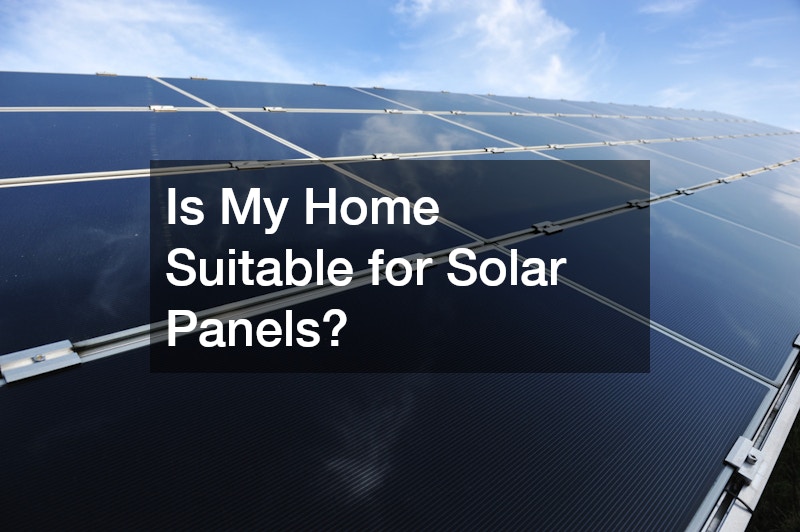As global awareness of energy sustainability grows, more homeowners are looking into solar installations to power their homes. Solar energy offers a viable solution not just for reducing dependence on non-renewable resources, but also for cutting down on monthly expenses. In this article, we will delve into three compelling reasons why homeowners should consider investing in solar panels.
1. How Much Will Solar Installation Save Me on Energy Bills?
Investing in solar panels involves an upfront cost, which can be substantial for many homeowners. However, these initial expenses are often offset by the long-term savings realized on energy bills.
Depending on your location and energy consumption, the break-even point can be as little as five to seven years.
Many states offer financial incentives and rebates, which can significantly reduce the initial installation costs. Moreover, solar installations can increase property value, making it a worthwhile investment for the future. While the upfront investment might seem daunting, the long-term financial benefits often outweigh the costs.
Numerous studies indicate that homeowners can save hundreds, if not thousands, of dollars annually by switching to solar power. The average American household can potentially save up to $1,500 each year. These savings make solar installation a smart financial decision for those looking to reduce their household expenses.
The amount you save on energy bills depends on several factors, including the size of the solar system and household energy consumption. Larger panels typically generate more electricity, leading to greater savings. Additionally, lifestyle changes such as energy-efficient appliances can enhance these financial benefits.
Another element to consider is the quality of the solar panels and the expertise of the installation team. High-quality installations tend to maximize energy output, thus enhancing savings. Proper maintenance and regular inspections are crucial for sustaining the panels’ efficiency and longevity.
Energy savings from solar panels vary widely across different regions due to fluctuating electricity prices and sunlight availability. In sunny states like California and Arizona, homeowners benefit from higher electricity generation, leading to more significant reductions in their energy bills. Regions with higher electricity costs, whether due to limited supply or other factors, see more dramatic savings as well.
Solar panel adoption is accelerating even in less traditionally sunny regions. Advances in technology have made panels more efficient at capturing sunlight, making solar a viable option in cloudier or cooler areas. Homeowners stand to lower their carbon footprint while enjoying the financial perks regardless of geographical location.
2. What are the Environmental Benefits of Installing Solar Panels?
Switching to solar power significantly reduces a household’s carbon footprint. Traditional electricity generation, primarily fueled by coal and natural gas, releases significant quantities of carbon dioxide into the atmosphere. By opting for solar panels, homeowners can contribute to decarbonization efforts, crucial for mitigating climate change.
Each kilowatt of solar energy can reduce thousands of pounds of CO2 emissions annually, producing clean and renewable energy. This reduction is equivalent to planting hundreds of trees every year. Given that the average American home uses 10,400 kilowatt-hours of electricity annually, the environmental impact of transitioning to solar is profound.
For environmentally conscious homeowners, solar installations offer a tangible way to contribute to environmental preservation. The switch reduces dependence on fossil fuels, supporting a transition towards more sustainable energy consumption. The initiative resonates with global renewable energy goals aimed at slowing climate change.
3. Is My Home Suitable for Solar Panels?
A suitable home for solar panels typically features a large, unobstructed roof area to accommodate sufficient panel installation. Ideally, roofs should face south or southeast to maximize sun exposure. Homes with steep or irregularly shaped roofs may face challenges, but technological advancements offer flexible installation solutions.
Structural integrity is crucial when considering solar panels, especially for older homes. Ensuring that the roof can support the additional weight is vital. If necessary, repairs to strengthen the roof can be part of ensuring a successful installation.
For homes with limited roof space, ground-mounted solar panels can be an alternative. These require sufficient yard space and typically involve more extensive permitting processes. Another option includes community solar programs, which allow participation in a shared solar energy system.
Solar installations offer numerous financial and environmental benefits, making them a highly recommended choice for today’s energy-conscious homeowner. From significant reductions in energy bills to contributing to global environmental goals, solar energy makes a strong case for adoption. By critically evaluating your home’s suitability and exploring available alternatives, investing in solar power becomes a viable, impactful decision.



